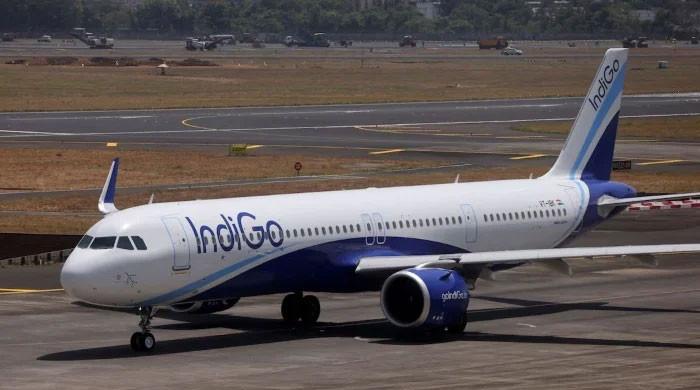Pakistan Extends Airspace Closure for Indian Airlines
Pakistan has prolonged its airspace restrictions for all airlines owned or operated by India until 4:59 am local time on June 24, according to a recent announcement from the Pakistan Airports Authority.
The directive encompasses “all aircraft registered, operated, owned, or leased by India,” including Indian military aircraft, as stated by the authority.
Concurrently, India has also prolonged its airspace closure for airlines from Pakistan until June 23.
This extension follows initial restrictions imposed last month, amidst ongoing tensions between the two nations.
On a related note, India initially shut down its airspace to Pakistani flights on April 23, prompting a similar action from Islamabad the following day. Subsequently, India implemented additional measures against Pakistan.
Pakistan’s response triggered global attention, leading to a ceasefire agreement that remains in effect.
While India’s aviation sector has experienced significant financial strain, Pakistan’s aviation industry has been largely unaffected. With only one eastbound flight being rerouted via China and limited operations in the Far East, the impact on Pakistan has been minimal.
This is not the first instance of such restrictions by Pakistan. Similar airspace closures occurred during the 1999 Kargil conflict and the 2019 Pulwama crisis. In both cases, India faced greater aviation disruptions than Pakistan.
Sources indicate that Indian airlines have incurred losses exceeding Rs8 billion in the past month alone. This includes Rs5 billion in added fuel expenses and Rs3 billion related to required stopovers for long-distance flights.
Sources reveal that Indian carriers using Boeing 777 and Airbus A320 aircraft have experienced an additional 2 to 4 hours of flight time per journey. With roughly 150 flights being rerouted on a daily basis, fuel usage has significantly increased.
Experts estimate that a Boeing 777 uses about 6,668 kilograms of fuel per hour, while an Airbus A319, A320, or A321 uses around 2,400 kilograms per hour. At the current jet fuel price averaging $0.82 per kilogram, Indian airlines are incurring nearly $557,625 in daily additional fuel costs, resulting in over Rs5 billion in fuel-related losses in a single month.
Furthermore, the increased travel durations have triggered limitations on crew duty hours, necessitating crew changes at intermediary airports. These stopovers also lead to additional expenses for landing charges, refueling, and airport services. Over the last 30 days, these stopover-related costs have totaled between Rs2.5 and Rs3 billion.
Reportedly, Air India is the most affected carrier and has requested monetary aid from the Indian government. Other airlines, including Akasa Air, SpiceJet, IndiGo, and Air India Express, have also encountered operational issues.
Flights originating from cities such as Amritsar, Delhi, Ahmedabad, Bangalore, and Jaipur are now required to take longer routes westwards, over the Arabian Sea. These detours impact flights heading to North America, Europe, and the Middle East.
Sources suggest that if the ban persists and the Indian government does not offer specific support, Indian airlines might be compelled to take drastic measures to sustain their operations.



Comments (0)
No comments yet. Be the first to comment!
Leave a Comment